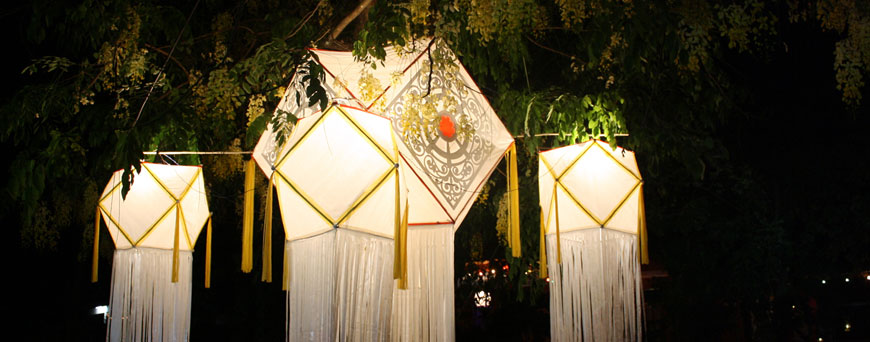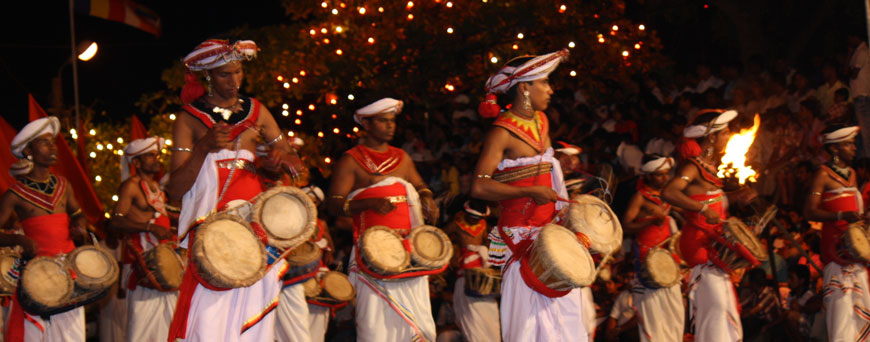

Vesak
On Ves?kha day, devout Buddhists and followers alike are expected and requested to assemble in their various temples before dawn for the ceremonial and honorable hoisting of the Buddhist flag and the singing of hymns in praise of the Holy Triple Gem: The Buddha, The Dharma (his teachings), and The Sangha (His disciples).
Devotees may bring simple offerings of flowers, candles and joss-sticks to lay at the feet of their teacher. These symbolic offerings are to remind followers that just as the beautiful flowers would wither away after a short while and the candles and joss-sticks would soon burn out, so too is life subject to decay and destruction.
Devotees are enjoined to make a special effort to refrain from killing of any kind. They are encouraged to partake of vegetarian food for the day. In some countries, notably Sri Lanka, two days are set aside for the celebration of Ves?kha and all liquor shops and slaughter houses are closed by government decree during the two days.

Perahera
The Kandy Esala Perahera (the Esala procession of Kandy) is the grand festival with elegant costumes held in July and August in Kandy, Sri Lanka. This historical procession is held annually to pay homage to the Sacred Tooth Relic of Lord Buddha, which is housed at the Sri Dalada Maligawa in Kandy.
A unique symbol of Sri Lanka, the procession consists of many traditional local dances such as fire-dances, whip-dances, Kandyan dances and various other cultural dances, in addition to the elephants who are usually adorned with lavish garments.
The festival ends with the traditional diya-kepeema ritual, a water cutting ceremony which is held at the Mahaweli River at Getambe, Kandy. The Esala is believed to be a fusion of two separate but interconnected "Peraheras" (Processions) – The Esala and Dalada. The Esala Perahera, which is thought to date back to the 3rd century BC, was a ritual enacted to request the gods for rainfall.
The Dalada Perahera is believed to have begun when the Sacred Tooth Relic of the Buddha was brought to Sri Lanka from India during the 4th century CE, eight hundred years after the passing away of Lord Buddha.

Beach
For five days between July and August, the lively beach town of Hikkaduwa is given over to this popular festival.
Expect international DJs, Sri Lanka dancers, live music and a range of activities to appeal to the whole family.
Associated events include a jazz festival, kite festival, kids’ corner and fireworks.

New Year
According to Sinhalese astrology, the New Year begins in April when the sun moves from the house of Pisces to the house of Aries.
The event is celebrated with cultural rituals across the country, including fireworks, big family dinners and colourful street parties in Sri Lanka’s major cities.
The date also coincides with the Tamil New Year, which sees similar rituals take place in the north of the country.






